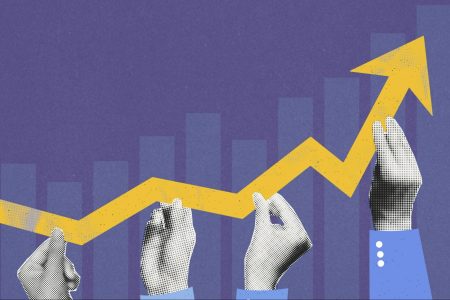Fears about rising bond yields are way overblown. This has turned investor sentiment quite dark — and created a textbook contrarian buy signal.
Here are six reasons why you can feel confident betting against the gloom and doom crowd and put money into the market — especially in economically sensitive cyclical stocks.
1. Bond yields are up because of tax-loss selling, which will end soon: Portfolio managers avoided stocks and loaded up on bonds in 2022. We know this because the sell-side suggested bond exposure was near all-time highs last year and this year as well.
Now, portfolio managers are sitting on huge losses in bonds. The iShares 20+ Year Treasury Bond exchange-traded fund
TLT,
for example, is down almost 50% from highs in 2020, and more than 40% from the start of 2022, when investors favored bonds over stocks because of U.S. recession fears.
“ Money managers have until the end of October to finish tax-loss selling. ”
Money managers have until the end of October to finish tax-loss selling. They do not wait until the last day, which means this downward pressure on bond prices will ease sooner than that.
2. Bonds are down because of renewed concerns about Fed tightening: We know this because of how bonds react to economic data. Bonds fell on October 3 after the Bureau of Labor Statistics reported an unexpected jump in August job openings to 9.61 million. The data had investors worried that interest rates will stay higher for longer. Conversely, bonds were strong (yields fell) on October 4 in part on news that Automatic Data Processing
ADP,
reported weak employment data.
“ It is pretty easy to make the case that inflation is under control. ”
This hyperfocus on inflation-related data seems misplaced, because it is pretty easy to make the case that inflation is under control. The Consumer Price Index (CPI) and the core CPI are in the low 2% range, excluding rent. Yes, rent inflation matters, but inflation in new leases is winding down, coming in at 3.4% in August. “Growing multifamily supply keeps new-lease rent growth subdued,” Goldman Sachs economist Jan Hatzuis says.
As for the wage-price spiral investors are worried about, the trendline in job openings relative to the labor supply tells the era of big wage hikes is winding down.
Goldman estimates the personal consumption expenditures (PCE), another inflation measure, will continue to fall, hitting 2.4% in December 2024.
In fact, this is arguably an ideal environment for investors, given the favorable mix of strong growth and declining inflation, says market strategist and economist Jim Paulsen. “Through the lens of another time we would be rejoicing,” he says.
3. This is the market’s “spooky season,” but it always comes to an end: The U.S. stock market normally hits annual lows in October. This is partly because institutional investor tax-loss selling has to finish by month-end. But it also has to do with the weather. People traditionally go into harvest and caution mode (raise cash) ahead of the cold season.
4. Bonds are weak because “bond vigilantes” are sending the government a message: Bond investors reacted poorly (selling bonds, driving up yields) this past Monday due to the federal budget deal announced Sunday. It contained no real budget cuts and is temporary. The bond vigilantes were telling Washington, D.C. to get the budget under control, says Ed Yardeni of Yardeni Research.
This weight on bond prices is harder to dismiss. One reason is the House of Representatives now has no leader, which increases the odds of a government shutdown on November 17 when the stopgap budget deal expires, says Goldman Sachs economist Alec Phillips.
That might not be a bad thing if it pressures politicians to strike a longer-lasting deal, which they typically do. Even Yardeni, who is quite concerned about the impact of the bond vigilantes pushing up yields, still sees 10-year Treasury bond yield settling at around 4.5%-5%.
5. 10-year bond yields are not that high, historically speaking: The 10-year Treasury bond yield has moved back to the 4%-5% that prevailed from 2003 to 2007, which was a good time to own stocks. For example, the SPDR S&P 500 ETF Trust
SPY
rose about 80% in that period. Indeed, rising rates have not hurt the U>S. economy this time around. “This raises the possibility that the economy can live with the bond yield back to its old normal level,” Yardeni says.
6. Investor sentiment is extremely weak — a bullish sign: The Investors Intelligence bull/bear ratio recently fell to 1.77. Historically, below 2.0 is a clear buy signal, in the contrarian sense (enough bearishness to be bullish). Meanwhile, the American Association of Individual Investors (AAII) bull/bear spread jumped to 13 percentage points at the end of September when 27.8% of respondents were bullish vs. 40.9% bearish. This historically wide spread confirms the bull-bear ratio signal.
What to do now
Buy stocks. Sentiment is extremely weak. But analyst earnings estimate revisions suggest this reporting season will be strong. The fourth quarter should be solid, too. The Atlanta Fed GDP now estimates 4.2% growth. Strong economic growth normally means strong earnings growth.
Read: Here’s a roadmap for stocks to own and avoid this earnings season
Also: Let’s debunk the bears’ top arguments against further stock market gains
Also, note that the historic low for the year in stocks is just around the corner. On average, the SPDR S&P 500 ETF bottoms on October 12, notes Jason Goepfert at SentimentTrader.
Investor worries about an overly aggressive Fed hurting growth has hit cyclical stocks hard. So they look attractive. To keep things simple, go with ETFs. Consider Fidelity MSCI Consumer Discretionary ETF
FDIS,
Fidelity MSCI Industrials ETF
FIDU,
Fidelity MSCI Materials ETF
FMAT
and SPDR S&P Oil & Gas Exploration & Production (XOP
XOP
).
For stocks, investment researcher Morningstar singles out Devon Energy
DVN,
which pays a 7.5% yield, and TC Energy
TRP,
(8.2% yield) in energy, and Park Hotels & Resorts
PK,
(5.14% yield) in consumer discretionary.
Buy yield
When yields rise, prices of dividend stocks decline, pushing up their yields. Utilities have been particularly hard hit. For exposure, consider the Fidelity MSCI Utilities Portfolio
FUTY
(3.24% yield). For stocks, Morningstar particularly likes Duke Energy
DUK,
(4.78% yield) and Entergy
ETR,
(4.75% yield).
Otherwise consider bonds to lock in some decent yield, via the iShares 20+ Year Treasury Bond ETF. “We still expect that inflation will continue to moderate, making bonds look even more attractive to investors,” Yardeni says.
Michael Brush is a columnist for MarketWatch. At the time of publication, he had no positions in any stocks mentioned in this column. Brush has suggested DVN in his stock newsletter, Brush Up on Stocks. Follow him on X @mbrushstocks.
Also read: How rapidly rising Treasury yields are shaking up financial markets — in 5 charts
Plus: Banks are bracing for a recession as Treasury yields surge
Read the full article here









